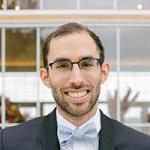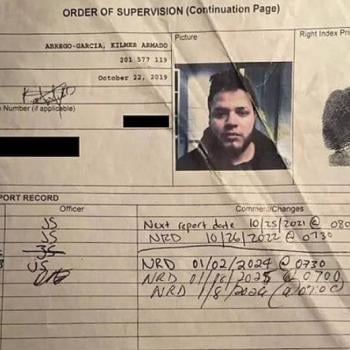I learned this early on. You can win matches and hit great shots, but people forget those things quickly. Peter Sampras is a good example. After his thirteenth major title, he was celebrating that he was close to beating Roy Emerson's record. Ten minutes after he had done it, the press asked, "So what else can you do?"
People will forget great wins. They will forget great shots. But when you touch a person's life for Christ, it stays with that person throughout this life and hopefully even beyond. So my faith helped me put things in proper perspective, and helped me have a humble attitude, knowing that the success that I had was not a result of my own doing but was due to the gifts and opportunities God had given me.
Did your faith change the way you played tennis?
My faith affected the way I did a lot of things. It made me work harder on the tennis court. I understood that my success was an opportunity to witness. Strangely enough, my losses too were a great way to witness. I didn't really realize that until later. But people are watching you: how you win, how you lose, and how you respond when you win and lose. People watch you.
I also realized that I was witnessing not only to the people watching on site or on television, but I could have an even great witness to the players, the officials, the referees, and the staff. Those guys saw me on a daily basis. How you conduct yourself as a tennis player becomes very, very important. You want the respect of the people around you, because that in itself is a witness.
One of the questions I was asked most often when I was on tour was, "What is this player or that player really like?" You see a persona on television, but what is he really like in the locker room? That in itself becomes very important. All these things reflect your faith: being humble when you win, gracious when you lose, and always respectful of the chair umpires and the linesmen and the staff.
Then, obviously, my faith also affected the way I trained. I was not out there just for myself. I wanted to give the Lord my best. I never wanted to walk off the court thinking that I could have trained harder or done something better, because I knew that Christ was my ultimate audience of one. If I walk off the court knowing that I hadn't given my best for the Lord, I would grieve over that in my heart.
So your faith changed you as a tennis player. Did your experience in tennis change your faith? How did your athletic experiences shape you as a Christian?
It's an interesting question. We learn so much through reading God's Word, and through the sermons we hear and people we meet. But God has taught me so much through the sport of tennis. Sports is such an amazing parallel to life. You have your ups and downs, your wins and losses, your trials and tribulations. The Lord has taught me so much through tennis, and he used all of those circumstances to help me learn and help me grow.
The French Open is really an incredible example. I came from a Chinese heritage, but there were never a whole lot of Chinese people around me. I didn't grow up with an appreciation for who I was and what my heritage meant. But through tennis I traveled to different parts of Asia, and then at the French Open in 1989 I finally understood the reason God had made me Chinese. The Tiananmen Square protest was taking place in the middle of the French Open. When the other players were practicing and preparing for their matches, I was watching the crackdown on television. God brought me through those matches, and allowed me to win on that final Sunday, and I understood that God had wanted me to win not for my own sake, but to put a smile on Chinese people's faces around the world, at a time when there was not much for Chinese people to feel joy about.
My match with Lendl is another example. I was very close to quitting in that match. The Spirit moved me to continue to play, and not quit. The Lord wanted me to learn to rely on Him, and to realize that my success did not come from my own abilities but from God working through me. That lesson in itself has been applied in my life countless times in countless different circumstances. When I'm tired and feel like quitting, I remember the times when God was faithful, and I receive the strength to keep fighting. When you see God's faithfulness time after time after time, your hope becomes so much stronger.
How was prayer a part of your athletic experience?
My prayer life is a constant conversation with God. The first thing I do in the morning is pray and read the Word. The last thing I do before I sleep is pray and read the Word. Throughout the day I am in conversation with the Lord. I could be doing anything and everything. I could be walking outside, or looking for a parking spot, or receiving an email about a friend in need. Obviously you need to have set-aside times to be still before God, but you can thank Him, praise Him, or ask of Him in any situation.





